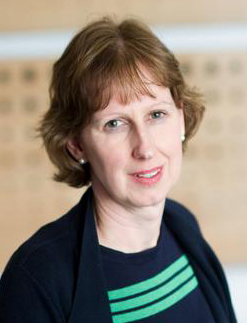Antisocial personality disorder, sometimes referred to as dissocial personality disorder, is a personality disorder characterized by a limited capacity for empathy and a long-term pattern of disregard for or violation of the rights of others, starting before one was 15 years old. Other notable symptoms include impulsivity, reckless behavior, a lack of remorse after hurting others, deceitfulness, irresponsibility, and aggressive behavior.

The Institute of Psychiatry, Psychology & Neuroscience (IoPPN) is a centre for mental health and neuroscience research, education and training in Europe. It is dedicated to understanding, preventing and treating mental illness, neurological conditions, and other conditions that affect the brain. The IoPPN is a faculty of King's College London, England, and was previously known as the Institute of Psychiatry (IoP).
Sir Michael Llewellyn Rutter was the first person to be appointed professor of child psychiatry in the United Kingdom. He has been described as the "father of child psychiatry".

Dame Uta Frith is a German-British developmental psychologist and emeritus professor in cognitive development at the Institute of Cognitive Neuroscience at University College London (UCL). She pioneered much of the current research into autism and dyslexia. Her book Autism: Explaining the Enigma introduced the cognitive neuroscience of autism. She is credited with creating the Sally–Anne test along with fellow scientists Alan Leslie and Simon Baron-Cohen. Among students she has mentored are Tony Attwood, Maggie Snowling, Simon Baron-Cohen and Francesca Happé.
Psychopathy, or psychopathic personality, is a personality construct characterized by impaired empathy and remorse, in combination with traits of boldness, disinhibition, and egocentrism. These traits are often masked by superficial charm and immunity to stress, which create an outward appearance of apparent normalcy.
Sophia Frangou is a professor of psychiatry at the Icahn School of Medicine at Mount Sinai where she heads the Psychosis Research Program. She is a Fellow of the Royal College of Psychiatrists and vice-chair of the RCPsych Panamerican Division. She is a Fellow of the European Psychiatric Association (EPA) and of the American Psychiatric Association (APA). She served as vice-president for Research of the International Society for Bipolar Disorders from 2010 to 2014. She has also served on the Council of the British Association for Psychopharmacology. She is founding member of the EPA NeuroImaging section and founding chair of the Brain Imaging Network of the European College of Neuropsychopharmacology. She is one of the two Editors of European Psychiatry, the official Journal of the European Psychiatric Association.
Terrie Edith Moffitt is an American-British clinical psychologist who is best known for her pioneering research on the development of antisocial behavior and for her collaboration with colleague and partner Avshalom Caspi in research on gene-environment interactions in mental disorders.
Callous-unemotional traits (CU) are distinguished by a persistent pattern of behavior that reflects a disregard for others, and also a lack of empathy and generally deficient affect. The interplay between genetic and environmental risk factors may play a role in the expression of these traits as a conduct disorder (CD). While originally conceived as a means of measuring the affective features of psychopathy in children, measures of CU have been validated in university samples and adults.

Francesca Gabrielle Elizabeth Happé is Professor of Cognitive Neuroscience and Director of the MRC Social, Genetic and Developmental Psychiatry Centre at the Institute of Psychiatry, Psychology and Neuroscience, King's College London. Her research concerns autism spectrum conditions, specifically the understanding social cognitive processes in these conditions.

Thalia Catherine Eley is a Professor of Developmental Behavioural Genetics at the Institute of Psychiatry's MRC Social, Genetic and Developmental Psychiatry Centre, King's College London. Her work focuses on the interplay between genetic and environmental factors on the development and treatment of anxiety and depression.

Katya Rubia is a professor of Cognitive Neuroscience at the MRC Social, Genetic and Developmental Psychiatry Centre and Department of Child and Adolescent Psychiatry, both part of the Institute of Psychiatry, King's College London.
Angelica Ronald is a Professor of Psychology and Genetics at the Centre for Brain and Cognitive Development within the Department of Psychological Sciences at Birkbeck, University of London, where she is the director of the Genes Environment Lifespan (GEL) laboratory. Angelica Ronald is also a visiting Senior Lecturer at the Institute of Psychiatry, Psychology and Neuroscience, King's College London. She has been awarded the Spearman Medal from the British Psychological Society and the Thompson award from the Behavior Genetics Association for her research.
Anne Farmer is emeritus professor of psychiatric nosology at the Institute of Psychiatry and was formerly lead consultant in the Affective Disorders Unit at the South London and Maudsley NHS Foundation Trust and the trust's director of medical education. Farmer's focus is on genetic research in affective disorders. Farmer was previously professor of psychiatry at the University of Wales College of Medicine.

Sarah-Jayne Blakemore is Professor of Psychology and Cognitive Neuroscience at the University of Cambridge and co-director of the Wellcome Trust PhD Programme Neuroscience at University College London.

Cathryn Lewis is Professor of Genetic Epidemiology and Statistics at King's College London. She is Head of Department at the Social, Genetic and Developmental Psychiatry Centre, Institute of Psychiatry, Psychology and Neuroscience.

Rosalind Ridley is a British psychologist and researcher who was head of the Medical Research Council Comparative Cognition Research Team in the Department of Psychology, Cambridge, UK, until 2005. She was a fellow of Newnham College, Cambridge from 1995–2010 and Vice-Principal from 2000–2005. She holds the privileges of a Fellow Emerita at Newnham College.
Heather Clare Whalley is a Scottish scientist. She is a Professor of Neuroscience and Mental Health neuroimaging at the Centre for Clinical Brain Sciences, University of Edinburgh, and is an affiliate member of the Centre for Genomic and Experimental Medicine at the University of Edinburgh. Her main focus of research is on the mechanisms underlying the development of major psychiatric disorders using the latest genomic and neuroimaging approaches.

Eamon Joseph McCrory is a London-based scientist and clinical psychologist. He is Professor of Developmental Neuroscience and Psychopathology at University College London, where he Co-Directs the Developmental Risk and Resilience Unit. He is the Chief Executive of the Anna Freud National Centre for Children and Families, Director of UKRI's programme on Adolescent Mental Health and Wellbeing, and Co-Director of the UK Trauma Council.

Gemma Modinos, born 1980 in Castellar del Vallès, is a Spanish neuropsychologist. She works as a Professor of Neuroscience & Mental Health at the Institute of Psychiatry, Psychology and Neuroscience of King's College London. She was a Wellcome Trust & The Royal Society Sir Henry Dale Fellow (2017-2023) and is a Group leader at the MRC Centre for Neurodevelopmental Disorders at King's College London. She was 2020-2022 Chair of the Young Academy of Europe, where she directed European efforts to optimise science policy from a youthful perspective; and 2020-2022 Junior Member of the Executive Board of the Schizophrenia International Research Society. She is known for her work revealing the role of emotion-related brain mechanisms and the neurotransmitters GABA and glutamate in the development of psychosis, and investigating how targeting these mechanisms can help design new therapeutic strategies.
Carrie Elyse Bearden is an American psychologist and academic. She is a professor at the David Geffen School of Medicine, University of California, Los Angeles, and Director of the UCLA Center for the Assessment and Prevention of Prodromal States, a clinical research program for youth at high risk for psychotic disorders. She is most known for her research taking a ‘genetics first’ approach to study brain mechanisms underlying the development of serious mental illness. Her work has identified biological convergence between genetically and clinically defined high-risk populations.










